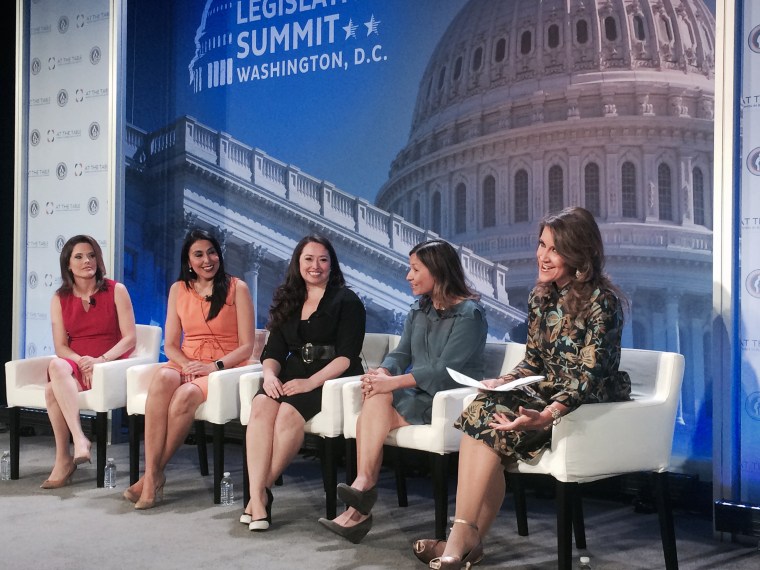WASHINGTON – A Latina whose father plotted to assassinate Fidel Castro, another who is the granddaughter of Cesar Chavez, one whose family went from Mexico to Alaska and another who got her start in a congressman’s office in her hometown all had one thing in common: they work or have worked in the White House.
The four gathered to talk about their personal lives and how they got to work in the White House and survive its pressures in a panel discussion at the U.S. Hispanic Chamber of Commerce’s legislative summit.
Mercedes Viana Schlapp, who worked as director of specialty media in the George W. Bush White House, said her father was made to turn over all he owned when Fidel Castro took power in Cuba.
But she said he fought back by being part of a counter-revolutionary group that sought to assassinate Castro. Thirteen men were executed and her father was a political prisoner for six years, she said.
“I remember my father always talking about how we have to fight for the freedom of this country," Viana Schlapp said.
Julie Chavez Rodriguez, deputy director of political engagement at the current White House, talked about growing up around people who barely had food on their table but worked to put food on the tables of others – farmworkers.
“My parents and my grandparents taught me not just to appreciate their work but to fight hard for their rights and to make sure they were treated with the dignity and respect that they deserve,” Chavez Rodriguez said.
She is the granddaughter of civil rights and labor leader Cesar Chavez and is one of 31 grandchildren.
“Growing up with role models like my grandfather and obviously my grandmother Helen Chavez, my mother Linda … and so many others, I saw the real power that Latinas bring when they are at the table,” she said.
Ginette Magaña, associate director for public engagement in the current White House, said her father always told her “Dale ganas,” (“Give it your all) and that helped her to get ahead.
She grew up in the border city of Del Rio, Texas and her family pushed education so that she was the first woman in her family to go to college. She said she started in the hometown office of former Rep. Ciro Rodriguez, D-San Antonio, handling constituents’ cases.
“That’s where I started doing Latino outreach, but I really didn’t know it was Latino outreach,” Magaña said. “I realized what a difference government could be with the right people and the right effort.”
She said she worked on the Affordable Care Act, a law that allowed her parents to get health care for the first time.
Ivette Fernandez, associate director for the Office of Public Liaison in the George W. Bush administration, said her parents moved to Alaska where she had her quinceañera, leading people unfamiliar with the tradition to believe her parents were trying to marry her off.
Her mother ran a beauty shop where she also cooked burritos and other food and so clients came for a haircut and food, she said.
Through a client who went to her mother’s beauty shop, Fernandez learned about and a job opening with Sen. Lisa Murkowski, R-Alaska, and got the job. She later got involved in his re-election campaign and then his administration.
Fernandez emphasized relationship building as what helped her move forward and important to getting ahead.
“Be careful again how you treat people,” she added, “because you never know if those people will end up being your boss later.”
The panel was organized by the USHCC Foundation.

